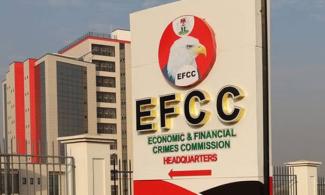
The Civil Society Legislative Advocacy Centre (CISLAC) and the Head of Transparency International Nigeria have urged the Economic and Financial Crimes Commission (EFCC) to embrace a more cost-effective way of fighting corruption.
Noting that the anti-corruption agency’s cost of operations has come at a huge price for taxpayers, a statement signed by CISLAC Executive Director, Auwal Musa Rafsanjani on Sunday urged the EFCC to strengthen preventive mechanisms.
Titled ‘Repositioning The EFCC For Effectiveness And Transparency In The Anti-Corruption War In Nigeria,’ CISLAC noted that a “total of 3785 (Three Thousand Seven Hundred and Eighty-five) convictions were recorded across all its Commands in 2022, recovering over $121 million (about N51 billion at the average exchange rate of N423/$ for 2022) and non-cash assets”.
It, however, added: “With its 2022 budget at over N43 billion, the Commission’s operations have however come at great costs at the expense of taxpayers.
“As a cost-effective and proactive way of conducting its operations, the EFCC should explore opportunities for strengthening preventive mechanisms, including but not limited to strategic collaborations and integration with relevant agencies for real-time data and information-sharing. Formulating strategies to prevent corruption will also entail enhancing the EFCC's capabilities, which includes fostering integrity within the organization and establishing frameworks that guarantee transparency and foster accountability in public administration.”
The organisation noted that the past administration, despite having introduced legal frameworks, institutions and initiatives, in driving its alleged anti-corruption agenda, failed to realise their objectives.
It added that as the country progresses “into a new dispensation and anti-corruption regime, we would like to situate our comments and recommendations within the following broad areas” which it listed as the following: Strengthening frameworks for effectiveness and efficiency; Strengthening measures to prevent corruption; Improving the quality of convictions; Transparency and Accountability; Professional conduct in investigation, arrest, prosecution, and public engagement; Strengthening domestic and international collaborations for collective impact; Complementing the reforming of the financial system; Asset Recovery: Constitution of legal team and Independence of the Commission.
Regarding transparency, it said, “There is an increased need for the demonstration of greater transparency and accountability to the Nigerian public, especially with regards to operations, budgets and expenditures.
“In promoting public confidence, both locally and internationally, we encourage the Commission to adopt a well-designed and operational system of asset declaration that can be an important element in the overall anti-corruption and integrity system through ‘asset declaration available for public scrutiny.’”
Regarding ‘Complementing the reforming of the financial system,’ the group said, “Despite the powers of and the checks that have been put in place by the CBN and other relevant institutions regulating the sector, it appears that the system is being manipulated as Nigeria loses between $15 – 18 billion annually to illicit financial flows (IFFs).
“The banking sector has been largely implicated in money laundering where they have been instrumental in the initial entry or placement phase that involves the initial movement of an amount of money earned from criminal activity into some legitimate financial network or institution.
“This illicit act embedded into a legal trade has pervaded both the national and international business and banking industry with unabated vigor.
“In 2021, a directive was issued by the then chairman of the Commission, for operators in the Nigerian financial system, particularly bankers to declare their assets as from June 1, 2021.
“That directive was rightly in line with Sections 1 and 7 of the Bank Employees, etc. (Declaration of Assets) Act 1986, which compelled Bank employees to make full disclosure of assets within fourteen days and provides a 10-year imprisonment sentence on conviction for offenses of unjust enrichment, respectively.
“Sustaining this initiative will ensure adequate measures in sanitizing the nation’s financial system by helping to prevent money laundering and illicit financial flows (IFFs) through which terrorism is largely funded, to effectively tax bank executives, and to expose illegal financial transactions.”